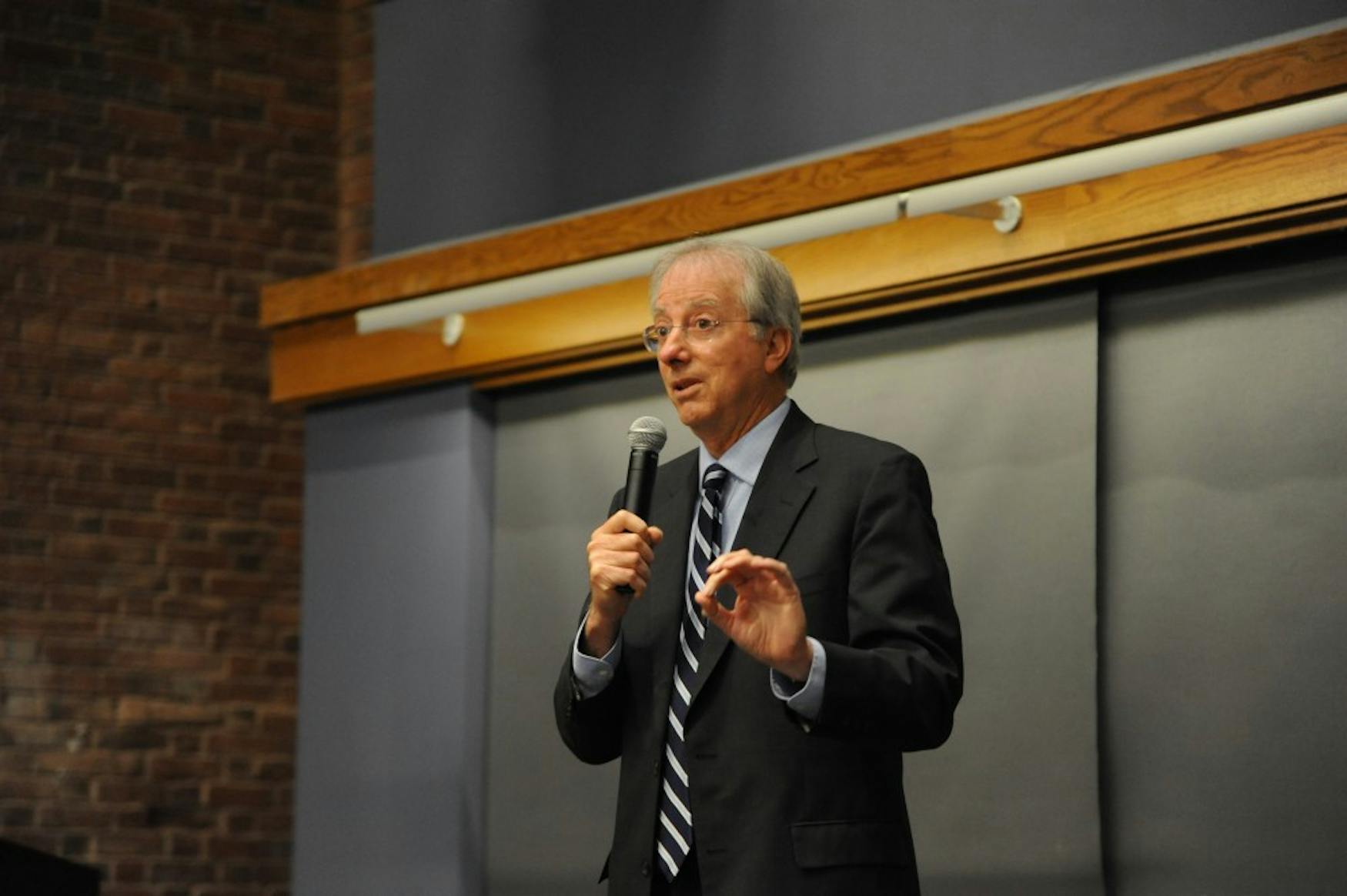Ross looks at future of Middle Eastern politics
On Thursday night, the University hosted United States Ambassador Dennis Ross, who served as Middle East Envoy under President Clinton, for a lecture titled “The Middle East and the Israeli Elections.”
Ross first became involved with U.S. Foreign Relations during the Reagan administration, serving as director of Near East and South Asian affairs on the National Security Council staff for two years and deputy director of the Pentagon’s Office of Net Assessment. Later in his career, Ross served as special assistant to President Obama and National Security Council senior director for the Central Region from 2009 to 2011 and as special advisor to Secretary of State Hillary Clinton. Ross was twice a visiting professor and a Richman Fellow at Brandeis. He is currently a professor at Georgetown University.
The Brandeis Israel Public Affairs Committee invited Ross to campus and co-sponsored the event. BIPAC Co-President Miriam Fink ’15 began the event by explaining to the audience how Ross had a “unique role” in her life through her family’s interactions with him in speeches and in classrooms.
University President Frederick Lawrence then introduced Ross, discussing his role in international relations and describing him as a “wise man,” someone “whose wisdom on issues transcended politics and even transcended certain issues.”
Ross began his lecture by offering his perspective on the relationship between President Obama and Israeli Prime Minister Benjamin Netanyahu. “It’s not the first time we’ve seen tension between a president and a prime minister,” Ross said, giving examples of conflict between President George H. W. Bush and Israeli Prime Minister Yitzhak Shamir.
Ross then discussed religion in the Middle East, using the summer 2014 Israel-Gaza conflict as a scope for studying the relationships between the different branches of Islam. Ross described the European anti-Israel demonstrations that followed the conflict, noting the lack of such demonstrations in the Middle East. According to Ross, this lack of demonstrations points to a larger conflict between Muslim groups, with the conflict ultimately between what he described as “radical Islamists and non-Islamists.”
“It’s not a Sunni-Shia conflict,” Ross said. “Radical Islamists, basically, even if they’re Sunni or Shia, … have a number of things in common: … they want to remake the region in their image, they believe in terror as [an] instrument that they can use to pursue the remaking of the Middle East in their image, … they want the U.S. out of the area, and they don’t accept Israel’s right to exist.”
Additionally, Ross described his efforts to broker peace between Israelis and Palestinians, noting the need for accountability on both sides if such an agreement should ever become feasible. “If you turn Gaza into a platform for attacks against Israel, if you turn it into a haven of terror, who’s going to say to you ‘Let’s take that terror model and apply it to the West Bank as well?’” Ross told the audience. “So I said, ‘This is in your hands. You can determine this. And you should seize the opportunity.’”
Ross also discussed the recent Knesset elections in Israel, touching in particular on the impact Netanyahu’s address to Congress had on the future of peace agreements in the region. “One way to make [a peace deal] happen is to understand why we haven’t been able to make progress,” Ross said, noting his opinion that certain statements the Prime Minister made haven’t “exactly added to a climate of making it possible to move ahead.”
However, Ross argued, it is also crucial to study past attempts at brokering peace in the Middle East. “If you’re going to make any effort to change the situation, you need to understand … why we weren’t successful before. There is again another narrative that’s out there [that] today it’s the Israelis who don’t want peace and the Palestinians who do. Neither one believes that the other is committed to two states.”
Moreover, Ross explained how Hamas’ attacks on Israel do not aid in bringing the two closer to a peace agreement. “[Hamas] wanted to score and make a point. It was about fighting Israel; it was not about turning Gaza into a growing concern,” he said. “Last summer, what we saw was [that] there wasn’t a shortage of steel or electrical wire underground, but there was above ground, and Hamas built tunnels not to protect its people; it built tunnels to protect its leaders, its weapons and its fighters.”
Ross also added that part of achieving peace in the region falls down to changing the environment in which the discussions are taking place.
“If we’re going to start peacemaking, you need to create an environment for peacemaking,” Ross said. “When we do nothing, we create a vacuum. When you create a vacuum in the Middle East, it gets filled.”
Ross concluded by urging the continuation of discussions for peace .
“The one thing I know for sure in the Middle East? Nothing good ever happens by itself,” he said.



Please note All comments are eligible for publication in The Justice.